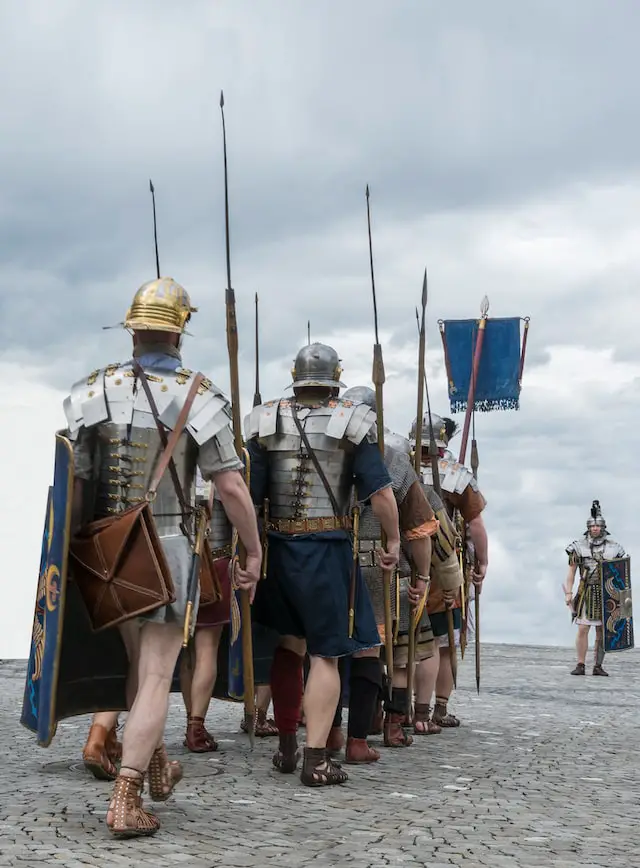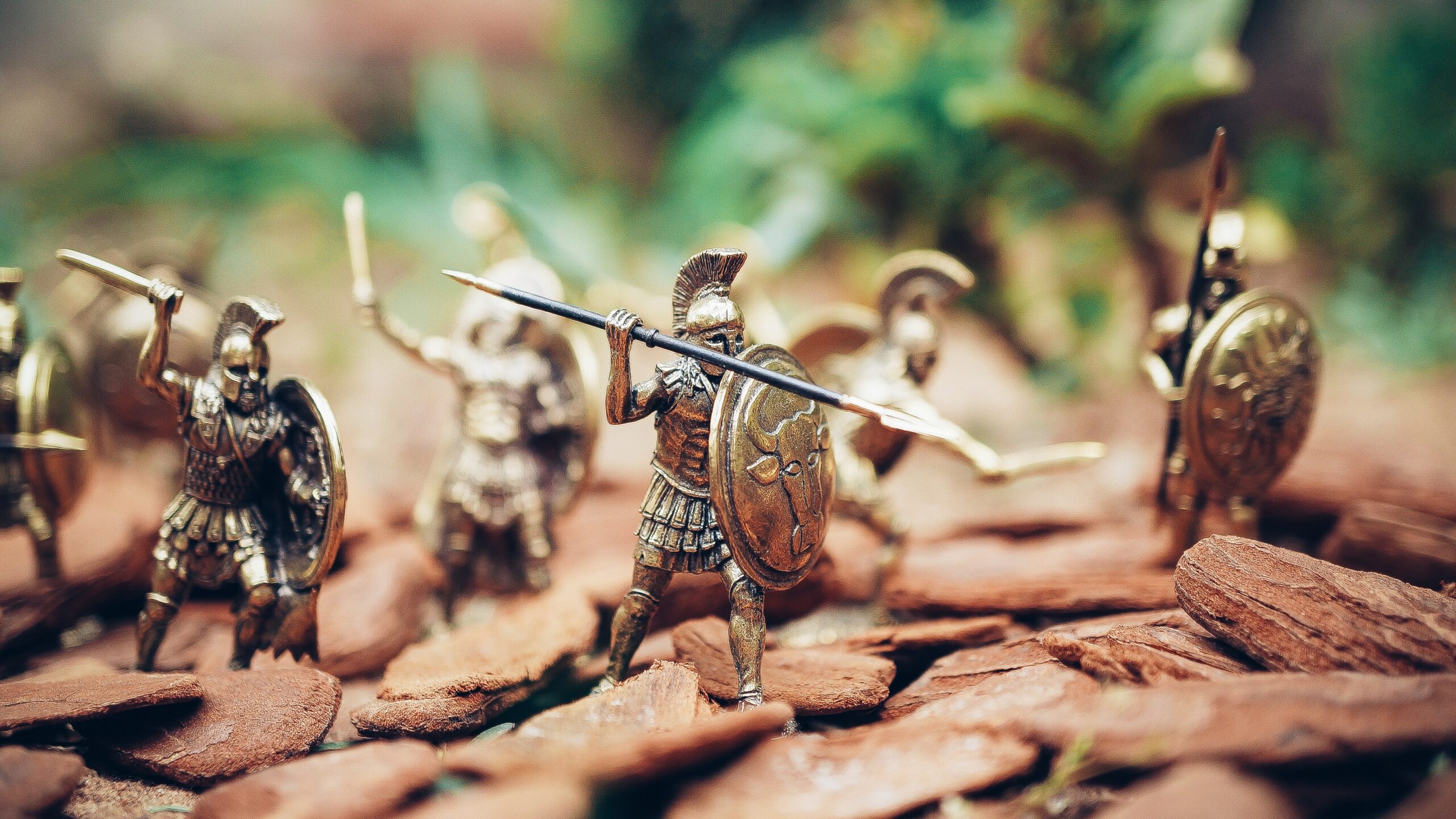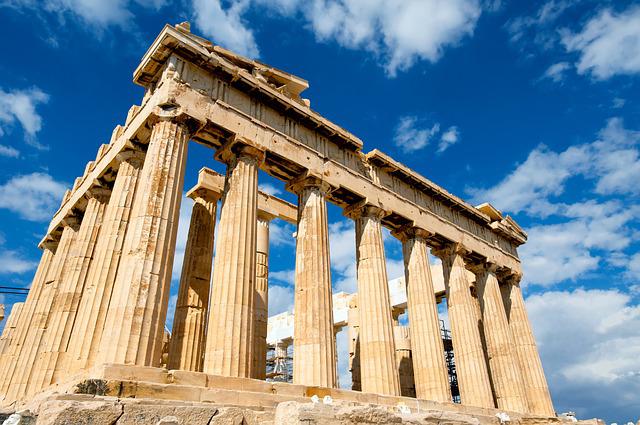There are many differences between the Romans and the Greeks, but there are also some similarities. Both cultures were very advanced for their time and greatly impacted the world. The Roman culture was more focused on military power and political control. The Greek culture was more focused on art, literature, and philosophy. Romans tended to be more organized and efficient than Greeks. Greeks were more creative and expressive. Both cultures were very influential in their time and have left a lasting legacy on the world.
What are the similarities between Romans and Greeks?
Both cultures were very advanced for their time, with impressive architecture, art, and literature. They also both had strong military traditions and were major powers in their respective regions. Additionally, both societies valued education and philosophy and had a significant influence on the development of Western civilization.
What are the differences between Romans and Greeks?
The main difference between Romans and Greeks is their culture. Roman culture was based on the Latin language, while Greek culture was based on the Ancient Greek language. Roman culture was also more focused on law and order, while Greek culture was more focused on art and philosophy. Additionally, Rome was a republic, while Greece was a monarchy. Finally, the two groups have different religions: most Romans are Catholic, while most Greeks are Orthodox Christian.
How did the Roman Empire fall?
The Roman Empire fell for a variety of reasons, including military overreach, government corruption, and the spread of Christianity. In the end, it was simply too large and too complex to sustain itself. With its vast territory and numerous cultures, the Roman Empire was ripe for internal strife and civil war. When barbarian invasions began in earnest in the 4th century, the Empire was already in a weakened state. The Roman Empire ultimately fell because it was unable to adapt to the changing world around it.
How did Ancient Greece influence Rome?
(Photo by Heinz Schneider on Unsplash )

The Roman Republic was heavily influenced by the government and culture of Ancient Greece. Rome’s first form of government, the Roman monarchy, was modeled after Greece’s monarchical system. The early Romans also borrowed heavily from Greek culture, adopting various elements of their religion, art, architecture, and literature.
Over time, however, Rome began to develop its own unique identity. The Roman Republic was founded in 509 BC, ushering in a new era of self-government. As Rome continued to expand its territory and power, its interactions with Greece became less frequent. By the time the Roman Empire was established in 27 BC, Rome had developed into a very different society than Greece.
Which is older Greece or Rome?
Greece is older than Rome.
The civilization of ancient Greece is generally considered to be older than that of ancient Rome. The earliest known settlements in Greece date back to the Neolithic period around 6000 BCE, and the civilization of ancient Greece emerged around the 8th century BCE with the rise of city-states such as Athens and Sparta. The civilization of ancient Greece was known for its achievements in art, philosophy, politics, and science.
On the other hand, the Roman Republic was established around 509 BCE. The Roman Republic was a federal republic consisting of Rome and other city-states in Italy. The Roman Republic was known for its military conquests and expansion, as well as its legal system, architecture, and engineering. The Roman Republic was replaced by the Roman Empire in 27 BCE, which lasted until 476 CE.
Why did Greece fall to Rome?
When Rome emerged as a powerful state in the central Mediterranean, Greece was in decline. Rome was able to take advantage of this and steadily increased its hold over Greece. This process was hastened by the series of civil wars that gripped Greece from 220-146 BC. These wars weakened Greece both politically and militarily, making it an easy target for Rome.
When did Rome conquer Greece?
The Roman conquest of Greece began in 146 BC, when the Roman general Lucius Cornelius Scipio Aemilianus invaded and destroyed the city of Corinth. This marked the beginning of the Roman Republic’s military campaign against the Greek city-states, which continued for centuries. In 27 BC, the Roman Emperor Augustus finally annexed Greece as a province of the Roman Empire.
Who ruled Greece after the Romans?
The Byzantine Empire ruled Greece after the Romans. The Byzantine Empire was the continuation of the Roman Empire in its eastern provinces during Late Antiquity and the Middle Ages, when its capital city was Constantinople (modern-day Istanbul, which had been founded as Byzantium). It survived the fragmentation and fall of the Western Roman Empire in the 5th century AD and continued to exist for an additional thousand years until it fell to the Ottoman Turks in 1453.
Who was Rome’s toughest enemy?
Rome’s toughest enemy was undoubtedly the Persians. The Persians were a formidable opponent, with a large and well-trained army. They also had a wealth of resources at their disposal, and were able to mount a serious challenge to Rome’s supremacy in the region. However, the Romans eventually emerged victorious from their conflict with the Persians, thanks in part to their superior military tactics and discipline.
Was Germany part of Roman Empire?
The Roman Empire was one of the largest empires in world history and at its height, it extended from Britain to North Africa and from Spain to the Middle East. Germany was not part of the Roman Empire, although it was frequently invaded by Roman troops as part of the empire’s expansionary campaigns. In fact, much of modern Germany was not even settled by Germans until after the fall of the Roman Empire.
Who defeated the Romans?
The Roman Empire was defeated by a number of forces, including barbarian invasions, economic decline, and military overreach. The most significant blow to the empire came from the Germanic tribe of the Visigoths, who sacked Rome in 410 AD. The empire never recovered from this blow, and continued to decline in the following centuries.
Was Alexander the Great a Greek or Roman?
Alexander the Great was a Greek. He was born in 356 BCE in Pella, the capital of the ancient kingdom of Macedon, which was located in the northern part of present-day Greece. Alexander was the son of King Philip II of Macedon, who had united the various city-states of Greece and expanded the Macedonian kingdom to include much of Greece and parts of Thrace, Illyria, and Paeonia.
Alexander inherited the throne of Macedon at the age of 20, after his father’s assassination, and quickly established himself as one of the greatest military leaders of all time. He embarked on a series of conquests that led him to conquer much of the known world, including Greece, Persia, Egypt, and parts of India. Alexander’s empire stretched from Greece and Egypt in the west to India in the east, and he is known for spreading Greek culture and ideas throughout the world.
Alexander died in 323 BCE in Babylon at the age of 32, leaving behind an empire that would be divided among his generals. He was a Greek king and his campaigns were primarily focused on expanding the Greek culture and spreading the Greek language.
Did Alexander fight the Spartans?
Alexander the Great did not fight the Spartans during his conquests. By the time of Alexander’s campaigns in the 4th century BCE, the city-state of Sparta had lost much of its power and influence.
In fact, Alexander was heavily influenced by the legacy of the ancient Spartan warriors, and admired the discipline and skill of their soldiers. When he conquered Greece, he made a point of not attacking or destroying Sparta. He visited the city, met with the Spartan leaders, and even took part in a traditional Spartan gymnopaedia, a type of military drill in the nude.
Alexander’s main focus during his conquests was on expanding the Greek culture and spreading the Greek language. He focused on the Persian Empire and the Eastern regions. He fought and defeated the Persian king Darius III and conquered the Persian Empire, which included present-day Iran, Iraq, Egypt, and parts of India.
It’s worth noting that by the time of Alexander, Sparta was no longer the powerful state it was in the past, so Alexander didn’t see the need to fight them.
Who finally defeated Sparta?
In the end, it was Rome that defeated Sparta. After years of fighting, the two sides finally came to an agreement in which Rome would be given control of Greece. This signaled the end of Sparta’s power and influence.
Who founded Greece?
(Photo by Jaime Spaniol on Unsplash )

Greece as a country did not have a specific founder, it emerged gradually over time. However, the civilization of ancient Greece, which is known for its achievements in art, philosophy, politics, and science, emerged around the 8th century BCE with the rise of city-states such as Athens and Sparta. The city-states were independent and had their own government and laws.
The earliest known settlements in Greece date back to the Neolithic period around 6000 BCE. The Minoan civilization on the island of Crete, and Mycenaean civilization on the mainland, were two of the early advanced civilizations of Greece. They both developed around 2000 BCE, and left impressive architectural and artistic remains.
It is also important to note that the concept of a unified country called Greece as we know it today did not exist in the ancient times and the term “Greece” came to be used to describe the region much later in history.
Who were the Greeks?
The Greeks were a Mediterranean people who shared a common culture and spoke a common language. The first Greek city-states were established in the late Bronze Age, and the first major civilization developed in Greece was the Minoan civilization on the island of Crete. The Mycenaean civilization, which flourished on the mainland from 1600 BC to 1100 BC, was closely linked to the Minoans and their culture.
The Greek Dark Ages (1100 BC-800 BC) saw the decline of the Mycenaean civilization and the rise of newcity-states across Greece. The most important city-state during this period was Athens, which became the leading power in Greece after its victory over the Persian Empire in 480 BC. Other notable city-states included Sparta, Corinth, and Thebes.
The Classical Period (500 BC-323 BC) is often considered the golden age of Greece. This was a time of great political, economic, and cultural achievements. The two most important figures of this period were Socrates and Aristotle, who helped to shape Western philosophy. Other notable figures include Pericles, Alexander the Great, and Philip II of Macedon.
Greece was conquered by Rome in 146 BC and became a province of the Roman Empire. Roman rule lasted until the fall of the empire in 476 AD. During this time, many aspects of Roman culture were adopted by the Greeks, including language, law, architecture, and religion.
What was Greek originally called?
In ancient times, Greece was known as Hellas and the Greeks were called Hellenes. The name Greece derives from the Latin term Graecia, which was used by the Romans to denote the country that we now know as Greece.
Why did Greek Empire fall?
The Greek Empire fell because of a number of reasons. One reason was the internal strife that plagued the Greek city-states. Another reason was the growing power of Rome and its allies. The Romans were able to defeat the Greeks in a series of wars, which resulted in the annexation of Greece into the Roman Empire.
Featured Image By – Image by nonbirinonko from Pixabay








